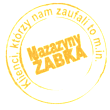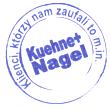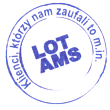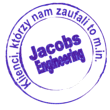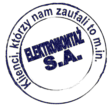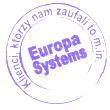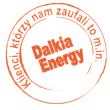Scissor lifts training course

Where are scissor lifts used?
They are universal devices, used, among others, in:
- In industry, by the Maintenance Departments, in order to maintain the continuity of technological processes, repairs of compressed pressure installations, ventilation, lighting and fire protection.
- In warehouses for material inventory and current repairs of lighting or humidification systems or monitoring of logistic process devices, as well as for marking racks with hangers.
- Platforms are also necessary to ensure the continuity of operation of large technological lines, in which the manufacturer has provided for their demonstration, and as a standard work tool.
- At airports, for loading unified containers into ships and for loading passive goods, e.g. meals for passengers.
- Construction industry - on the 1st platform, which, depending on the type of platform, can be unfolded, even several workers can stay at the same time, carrying out work outside the constructed structures or interior finishing work.
- Renovation works - scissor lifts are used to paint the facade, insulate with polystyrene or in conservation works.
- Companies dealing in cleaning windows in office and public buildings - the small size of platforms on which the lifts are placed make this type of devices work well in urban space - you can get them right up to the wall of the building, even in dense downtown buildings, requires they are, however, the fencing of the danger zone.
- Energy companies and companies dealing with lighting service - the booms of scissor lifts allow you to raise the platform to a height of even several meters, thanks to which employees can easily get to the damaged lighthouse. It should be noted that such works should be performed with the voltage turned off, in accordance with the technological instructions of the given network manager. Personnel performing work related to the energy industry in the field of operation, i.e. manual work, should have the appropriate scope of G1e qualifications. The commissioning and supervising staff must have the appropriate scope G1.
Scissor lifts and other types of mobile platforms
Petrol or electric lift?
The scissor lifts differ from each other mainly in the type of drive. Users can choose between electric and petrol lifts. The former are usually smaller, more efficient and quieter. They do well indoors. Diesel powered lifts are usually larger devices with large wheels that will cope with uneven terrain.
How to get UDT qualifications?
As with all mobile platforms, to operate scissor lifts it is necessary to hold a licence issued by the Office of Technical Inspection. A positive exam result largely depends on good training and the attitude of the candidate operators , including the choice of the right form of training. The UDT requires both theoretical knowledge of how to operate scissor lifts: an assessment of the technical condition of the equipment's construction, the principles of Health and Safety and others, as well as the practical ability to use them.
Based on our many years of experience, we offer a scissor lift course with a range of issues consistent with the scope required in the UDT exam. Theoretical classes are held in-house or online, in the form of webinars, and in the practical part, we use our own hardware base. We adjust the dates of the training courses to the dates of the exams organized by the Office, so that the future operator of the increases is up-to-date with the knowledge required during the tests.
How to sign up for classes?
Courses are open, available to individual clients, or closed - then they are organized at the request of the employer and are available only to his employees. For the details of the upside rates (price, duration, available dates) please contact us by phone or e-mail. A face-to-face conversation will allow us to identify training needs, propose the form of the course and its date.












